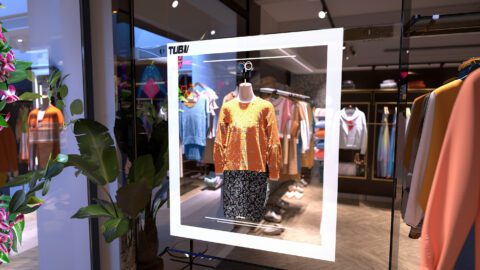With a changing landscape comes a changing shopper. It’s no longer enough for retailers to keep up with the new technologies and innovations disrupting today’s industry; they must keep up with consumer demands and needs on top of it — now more than ever. A new study conducted by Daymon revealed the emergence of three new kinds of shoppers that retailers must keep on their radar for success:
- Vocal Aficionados (VAs): These consumers have a zest for shopping and for life. They are digital masters and technology experts that want to share their opinions with the world.
- Balanced Enthusiasts (BEs): This category of shoppers is more cautious in their spending. Their desire to share and interact in shopping processes is tempered, and they’re not as willing to spend time on new technology as vocal aficionados.
- Struggling Apathetics (SAs): These consumers are disengaged due to financial and life circumstances. Price is their primary motivator.
The research also revealed five key shopper trends transforming the global retail relationship:
- Co-Creation is the future of retail innovation;
- Fresh is the gateway to shopper loyalty;
- A new dimension of private brand is emerging;
- Conversational engagement must extend outside the store; and
- Seamless integration with mobile is a must.
Consumers are abandoning traditional labels and choosing to identify themselves by real and authentic narratives, and demography alone is no longer the key divider, according to the report, titled: From Shopper To Advocate: The Power Of Participation. It’s now the desire for participation in the shopping experience that should be used to segment shoppers.
“With legacy categories declining, digital strategies emerging and shoppers’ demand for engagement and customization increasing, retailers and brands must better understand the emerging needs and behaviors of shoppers on a global scale and dramatically rethink their go-to-market strategies,” said Dave Harvey, Vice President of Thought Leadership at Daymon in a statement. “As shopping becomes more on-demand and increasingly personalized each day, we find ourselves amid a seismic shift that promises to reshape retail as we know it.”
Consumers Want To Provide Feedback To Improve Their Experience
The study found that Vocal Aficionados (55%) and Balanced Enthusiasts (45%) are interested in giving a company feedback to enhance the shopping experience. Fifty-one percent of VAs and 42% of BEs are also interested in helping a company design a new product or service. Nearly one-quarter (23%) of VAs and 33% of BEs expressed interest in greater engagement with retailers, brands and the overall shopping experience.
But retailers that ask for feedback must be prepared to respond to it, according to Dave Harvey, VP of Global Thought Leadership for Daymon. For example, a grocery store in Amsterdam offers customers comment cards to provide feedback. The company then responds to each comment right on the same card, where it is displayed on a bulletin board in the front of the store for everyone to see.
Another example of this “co-creation” strategy is how Aldi in Germany crowdsources desserts by asking customers what their favorite dessert toppings are. The winner then goes into full distribution in the stores.
“Fresh” Drives Store Loyalty
Six out of 10 shoppers cited fresh categories as important factors in store choice. But Harvey noted that fresh “means more than just an attractive produce section.” For example, VAs rated five key elements related to freshness that affect their store choice:
- In-store restaurant (53%);
- A wide selection of natural and organic products (33%);
- Freshly prepared foods (31%);
- Sustainably produced or sourced products (24%); and
- A great selection of local products (22%).
For example, a Florida Walmart’s efforts around the “fresh” category include a partnership with fast food restaurant Grown to bring an organic fast food drive through inside the store. Another retailer, Metro in Germany, features an in-aisle greenhouse where customers can pick their own herbs.
In addition, 7-11 in Chicago partnered with Farmer’s Fridge to incorporate salad and healthy snack vending machines to its stores.
Private Labels Get An Upgrade
Engaged shoppers such as VAs recognize how private brands can become a differentiating factor in the shopping experience. They don’t necessarily see private labels as just a cost-effective option. VAs agree that private brands:
- Have attractive packaging (41%);
- Are trendy (37%);
- Offer unique flavors they can’t get elsewhere (36%);
- Understand their local needs (28%); and
- Provide a higher quality (27%).
“Vocal Aficionados are giving retailers permission to get creative and unique with their private brands,” said Harvey.
Waitrose, a chain of British supermarkets, for example, has its own brand of prepared meal solutions. Each container is color-coded around calorie amounts so customers can mix and match containers to create a meal for their desired calorie count.
The findings of From Shopper To Advocate: The Power Of Participation were based on an online survey conducted by Daymon between December 2016 and February 2017. The survey polled 8,500 consumers from eight countries, including Brazil, Canada, China, Germany, Japan, South Africa, the U.S. and the U.K.













